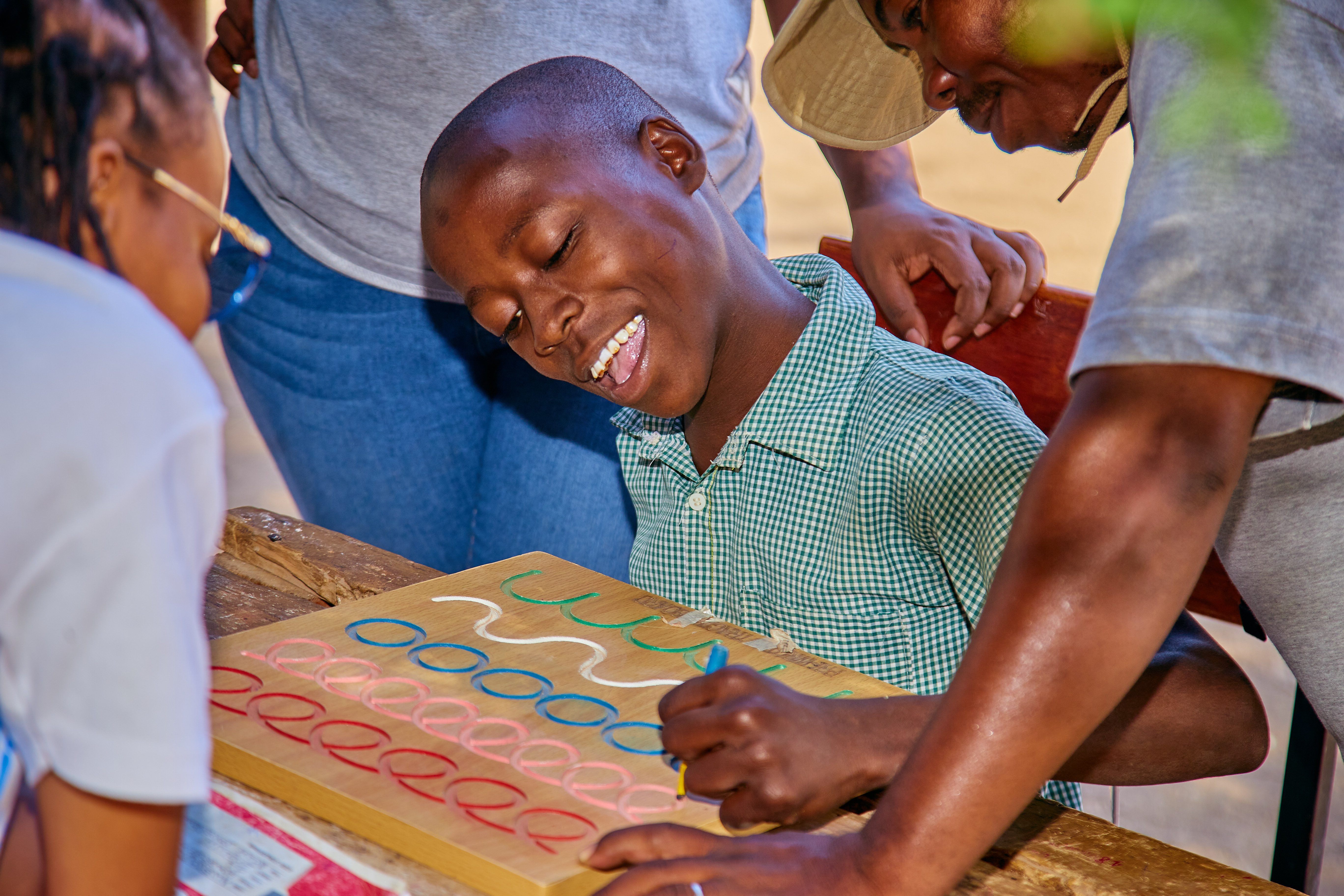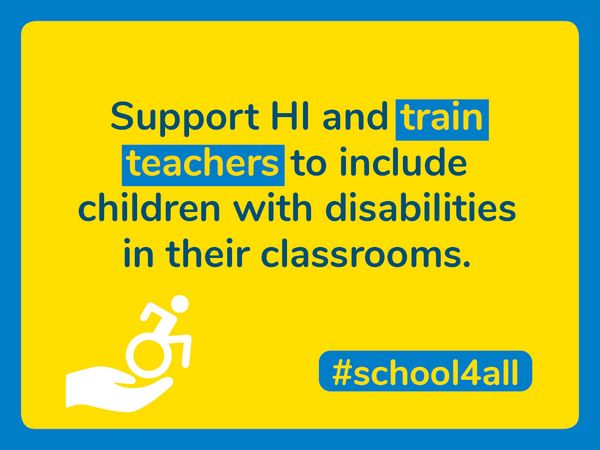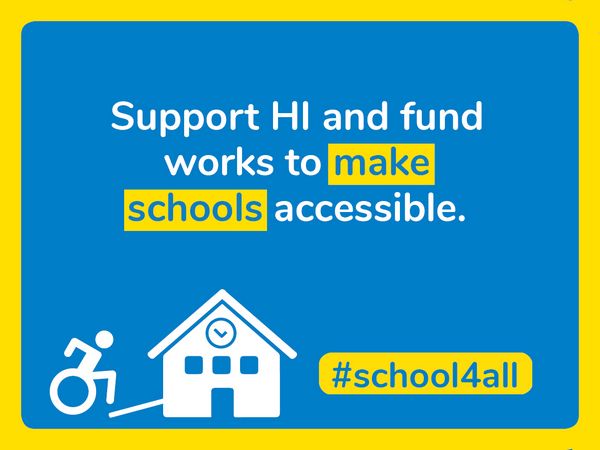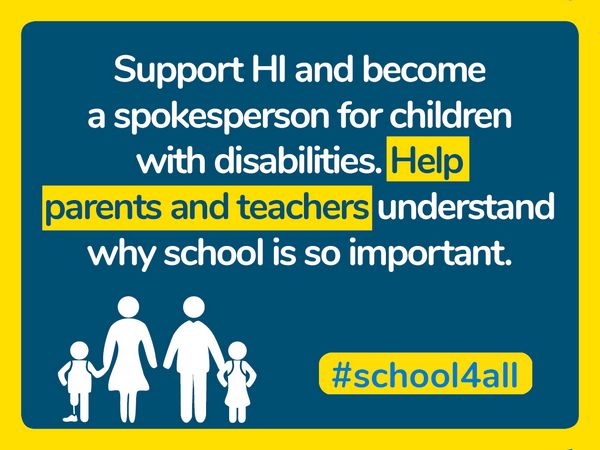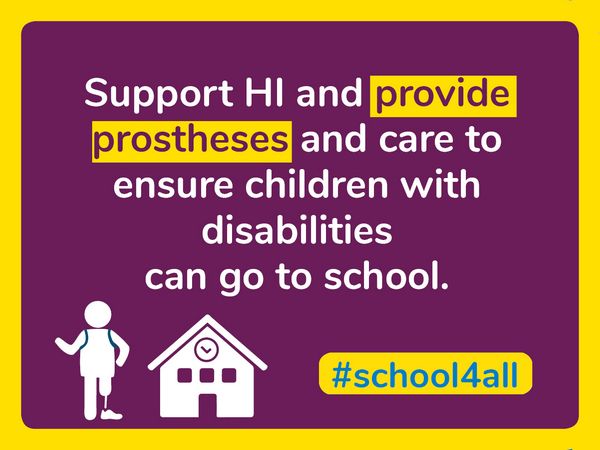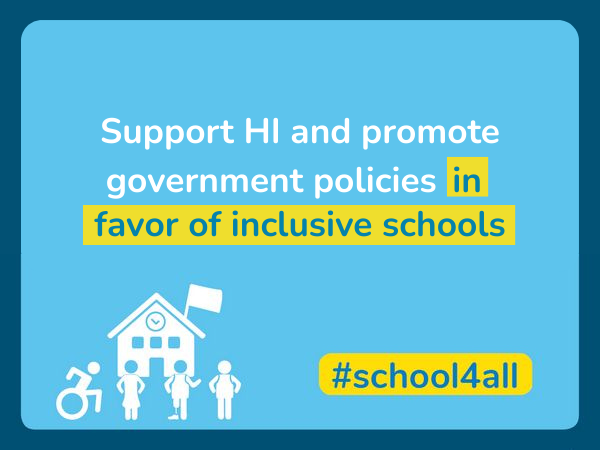#school4all
Worldwide, more than 32 million children living with a disability don’t go to school. These children are denied their fundamental right to learn, just because they have a disability. At HI, we believe that every child has the right to a quality, inclusive education. That’s why we have launched our global #School4All campaign to raise awareness and win support for this major cause.

© Lucas Veuve/HI


